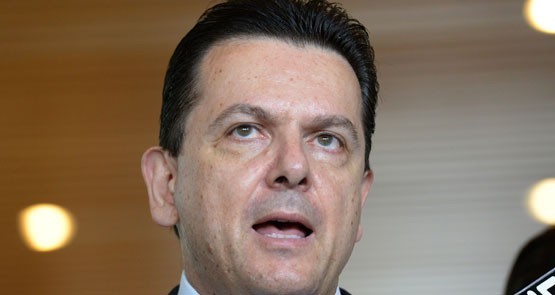
It’s a sad fact that whistleblowers almost always bear a high personal cost for exposing illegal and unethical behaviour because, in doing so, they put people with responsibilities higher up the food chain in jeopardy.
From early childhood, reporting genuine wrongdoing becomes conflated with telling fibs to get others in trouble. The result is most people have it drilled into them to just keep their mouths shut and mind their own business, or be branded an untrustworthy tattle-tale.
Combined with the actual consequences that have befallen past whistleblowers, there is good reason to keep your head down. The number of public servants coming forward with information about shifty behaviour is on the rise, but the statistics also show fear of reprisals is still prevalent.
Would a little money sweeten the deal and encourage more whistleblowers to come forward? South Australian Senator Nick Xenophon thinks it might.
He suggests changing legislation to offer a “lump sum or income protection” to people who risk their current job, and their future employment prospects in many cases, by blowing the whistle on corruption. In the US, whistleblowers can get a kind of bounty by sharing in fines paid by organisations they help to prosecute.
“We need to break the culture of silence that can pervade all organisations — governments, corporations, unions and even sporting clubs when something is not quite right,” said Xenophon. “Whistleblowers just don’t come forward in this country because doing so invariably leads to their job and career being destroyed.”
Public sector whistleblowers already have more protection than everyone else — and more than they had in the past — via the Public Interest Disclosures Act, which took effect two years ago. The scheme is supposed to protect their identities, provide a strong basis to launch legal action in response to any threats or actual reprisals against them — or against suspected whistleblowers — and give immunity to civil, criminal or administrative liability for the disclosure.
The Commonwealth Ombudsman’s annual report notes “initial doubts” about the new scheme but says it has been “instrumental” in bringing important information to light, and responsible for an 11% increase in disclosures by public servants:
“This has been acknowledged by senior managers as having been beneficial to the administration of their agency.”
The Ombudsman says agencies that had the least PID reports aren’t necessarily squeaky clean. They might just have low awareness of the new scheme, less accessible PID officers, or a “culture that complaint information is not a valuable resource for improving performance”.
The annual report also lists 53 complaints to the Ombudsman in 2014-15 about how agencies reacted to PIDs. Whistleblowers were unhappy how thoroughly their disclosures were investigated and decisions not to investigate, how well they were kept informed, and even complained of reprisals and breach of confidentiality. The Ombudsman found “shortcomings” in only two cases, which the agencies agreed to address, and reports:
“We have noted a trend in complaints relating to allegations of reprisal action…
“We have also identified a trend for some disclosers who are disappointed with the outcome of a PID investigation to make complaints about alleged reprisal actions.”
*This article was originally published at The Mandarin — sign up for free access and daily newsletters







Crikey is committed to hosting lively discussions. Help us keep the conversation useful, interesting and welcoming. We aim to publish comments quickly in the interest of promoting robust conversation, but we’re a small team and we deploy filters to protect against legal risk. Occasionally your comment may be held up while we review, but we’re working as fast as we can to keep the conversation rolling.
The Crikey comment section is members-only content. Please subscribe to leave a comment.
The Crikey comment section is members-only content. Please login to leave a comment.